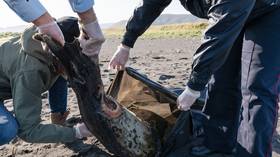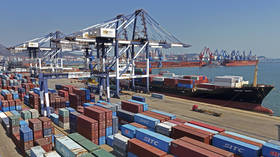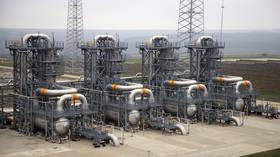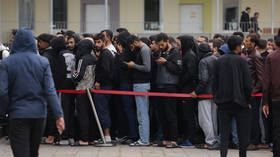Pollution, algae or volcanos: Russian authorities name possible reasons for hordes of sea life washing up on Far Eastern beaches

After shocking images emerged, over the weekend, of a mass marine life die off on the beaches of Kamchatka, the Far Eastern Russian region's governor, on Monday, suggested possible causes for the startling occurrence.
Vladimir Solodov listed man-made pollution, natural phenomena, and seismic activity as possible theories for the area’s recent unexplained tragedy.
Hordes of sea creatures, including octopi, crabs, and starfish, were found dead on the shores of Kamchatka, a remote peninsula, an eight-hour flight to the east of Moscow. Famous for its beautiful beaches and untouched nature, it has over 100 volcanos and is included on the UNESCO World Heritage List.
On Saturday, people relaxing on Khalaktyrsky Beach, a popular spot for locals, began to notice that dead sea life was washing up on the shores. In the weeks prior, surfers had complained of eye problems after being in the water.
Also on rt.com ‘It’s like a graveyard’: VIDEOS show mass death of sea life at Far East Russian tourist hotspot, surfers complain of toxic burnsThe authorities have now come up with three possible reasons for the environmental disaster, which the governor, Vladimir Solodov, listed as “man-made pollution,” “natural phenomena linked to algae behavior,” and “seismic activity associated with volcanos.”
So far, these are just theories, and the truth won’t come out until test results come back from the lab, the governor said.
On Twitter, environmental activists Greenpeace Russia called the situation a “disaster,” noting that samples taken by experts found an excess of oil and phenol in the ocean.
Environmental disaster happened in Kamchatka. Experts found an excess of oil products (4 times), phenol (2.5 times) and other substances in water samples. The extent of the pollution has not yet been determined. Greenpeace requires immediate investigation. pic.twitter.com/UNVMQjaumi
— Greenpeace Russia (@greenpeaceru) October 3, 2020
Think your friends would be interested? Share this story!















